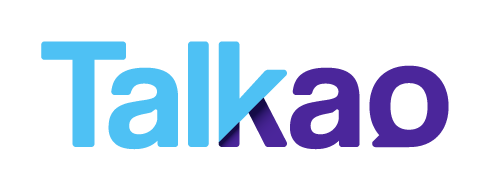
Business trips are undeniably filled with opportunities to grow your company. While traveling, you can meet new partners, seek investors, and build valuable networking connections. But beyond that, business travel also opens doors to learning, innovation, and discovering new business models. In short, it’s a key element in the growth of any startup—or even a well-established business.
However, many business trips come with a major communication challenge: language barriers. If you’re traveling within your own country or to a region where your language is spoken, communication is rarely an issue. But what happens when you visit places where different languages are spoken? Or how can you improve your experience in multilingual environments like conventions, conferences, or trade shows?
That’s where AI-powered translation technology becomes your best ally. In this article, we’ll explore how these tools can help you break down communication barriers and maximize the value of every business trip—with the help of Talkao’s smart solutions.
The most common types of business travel
Some might think that business travel is a thing of the past. With modern communication tools like video conferencing, it’s easy to assume that traveling is no longer necessary. After all, we live in a hyper-connected world, right? Think twice before agreeing with that idea.
Yes, we now have incredible technologies that make communication faster and more affordable. However, despite high-speed internet and endless video calls, face-to-face communication still holds immense value. For many business professionals, nothing beats a one-on-one conversation when it comes to closing deals.
Let’s explore some of the most common types of business trips that remain essential across nearly every industry:

Conferences, trade shows, and conventions
These are perhaps the most frequent types of business travel. Attending international conferences is an excellent opportunity for learning and professional development. You get to hear directly from industry experts, discover new technologies, and learn about the latest trends and methods in your field. You might even participate as a speaker or panelist.
Trade shows are another common form of business trips. At these events, you can experience innovations firsthand, connect with suppliers, test new products, and explore software and tools relevant to your industry. They’re incredibly enriching experiences.
Conventions also play a key role in many sectors. These gatherings include cycles of talks, workshops, exhibitions, and networking sessions, all held in one strategic location. They’re a great opportunity to connect with professionals from other regions and exchange ideas with colleagues from around the world.
Face-to-Face meetings with suppliers, clients, or investors
Often, business trips involve more personalized meetings. Whether you’re a business owner or a corporate executive, meetings are always on your agenda. And many high-stakes meetings are not held online. When trust, confidentiality, or personal connection is involved, in-person interaction is still preferred.
These meetings can take place in both formal and informal settings. Sometimes, the most important decisions are finalized in more relaxed environments, like over dinner or during a social event. These informal moments often help strengthen professional relationships.
Additionally, meetings can serve multiple purposes—you might meet with a supplier, client, and investor all in one trip. When these roles intersect, the discussions can become especially strategic and impactful.
Visits to facilities, branches, or strategic partners
In some cases, business trips are made to visit company sites in other regions. Whether it’s a branch office, manufacturing facility, or government entity, these visits are key for business development and supervision. They may also be used to explore new technologies or practices that could be implemented in your local operations.
Business trips also provide opportunities to visit strategic partners. These can include service providers, manufacturers, or distribution allies. Strengthening these relationships adds significant value to your business and often leads to better collaboration and growth.
Courses and professional training
This is one of the most valuable forms of business travel when it comes to professional development. Attending courses, seminars, or academic programs abroad is essential for staying competitive. It’s not only about gaining new knowledge—it’s about keeping up to date with the latest global standards.
Learning how things are done in other regions broadens your perspective and equips you to innovate and improve your business. That’s why these learning trips are crucial for enhancing both your personal skill set and your company’s capabilities.
Why business trips matters to you
Business trips are often seen merely as corporate obligations. However, they can become deeply enriching experiences, both personally and professionally. Beyond meetings and tight schedules, traveling for work exposes you to different cultures, pushes you to communicate more effectively, and stimulates personal growth in ways you may have never imagined.
Let’s take a look at some of the key benefits business travel can offer you:
Enhance your communication skills in real-world contexts
One of the biggest challenges of business travel is also its greatest advantage: exposure to reality. There’s no doubt that business trips are valuable opportunities—but they also demand a lot from you. Being immersed in a different cultural environment means you must adapt to unfamiliar accents, idioms, and communication nuances—things that can’t easily be taught in an office setting.
Business travel provides hands-on experience that enhances and scales your communication skills.
Expand your international professional network
Another major advantage of business travel is the chance to build a global professional network. As we’ve mentioned before, networking brings immense benefits to your business—but it’s also a powerful tool for your personal growth.
There’s nothing quite like attending international conferences, trade fairs, business meetings, or industry-specific events. These encounters allow you to connect with professionals from diverse countries and sectors. Over time, this can open doors to new job opportunities, strategic collaborations, and even long-lasting friendships—benefiting both your career and your business.
Develop adaptability and cultural intelligence
When you travel for work, you’re not just adjusting to new time zones, food, or weather—you’re navigating different cultural realities, business protocols, and social codes. This constant exposure to the unfamiliar pushes you to cultivate a flexible, open-minded, and tolerant attitude.
Cultural intelligence is essential in today’s global business environment. Companies are actively seeking professionals who can thrive in multicultural settings. Every business trip teaches you to listen better, judge less, and adjust your behavior accordingly. This helps develop two of the most important soft skills: empathy and emotional intelligence. These, in turn, greatly enhance your ability to interpret not just what is being said, but how and why it is said.
Boost your self-confidence and personal autonomy
Make no mistake—business travel is also a personal challenge. You’re outside your comfort zone, making quick decisions, handling unexpected situations, and solving problems in real time. All of this contributes to building your self-confidence and independence.
Being able to communicate in a different language allows you to navigate a complex conversation and successfully close a deal abroad. This sense of achievement is powerful. You realize that you can adapt, perform, and grow in any professional setting. This feeling of accomplishment becomes a constant source of motivation. Especially in your journey toward language proficiency and career advancement.
Fuel lifelong learning and cultural curiosity
All business trips are also chances to learn something new. Whether it’s discovering a word, understanding a cultural tradition, or touring a production facility, each experience transforms you. It makes you more curious, more receptive to knowledge, and more open to change.
What’s more, the learning doesn’t stop once you’re back home. You return with fresh perspectives, new ideas, valuable lessons—and a renewed drive to keep improving. This mindset of continuous learning is essential in today’s fast-paced and competitive workplace.
Business trips as an investment in your growth
It’s time to start seeing business travel not as a task on your calendar or a requirement from your boss. It is an investment in your development. Every trip, every encounter, and every conversation outside your usual environment is an opportunity—a chance to grow, evolve, and become a better professional… and a better communicator.
Never underestimate the impact these experiences can have on your learning, especially when it comes to your communication skills. Nothing replaces real-world immersion, and no book or language school can offer you the same level of insight.
What are the main challenges of business travel in a foreign language?
Have you ever felt limited during your business trips because you didn’t speak the local language? If so… welcome to a reality shared by millions of professionals around the world. In today’s globalized world, career opportunities know no borders—and language skills have become essential allies for your growth. But when you don’t master them, they can quickly turn into a real barrier—one that directly impacts the success of your international work experience, both professionally and personally.
Business travel is more than just going from point A to point B. It’s about connection, intercultural learning, business positioning, and above all, individual growth. But to make the most of these opportunities, you need more than a plane ticket and a meeting schedule. You need to communicate—and language mastery is key to doing that effectively.
Here are some of the biggest challenges professionals face when working outside the safe environment of the office:
Communication: The core of every business relationship
As you know, most business trips involve in-person meetings. But they also include presentations, negotiations, client visits, and participation in industry events. If you don’t speak the local language—or at least a common language like English—every interaction can become a source of stress and insecurity.
How can you build trust if you can’t express yourself clearly? What impression do you make if you depend on interpreters or translators at every turn? The language barrier can lead to missed opportunities—from closing deals to understanding key cultural nuances that influence decision-making.
Moreover, when you’re unable to communicate independently, you may come across as less competent or prepared—even if your professional background is impressive and your strategic value is undeniable. In the long run, this can affect how colleagues, clients, and partners perceive you.
Language as a key to cultural immersion
One of the greatest benefits of business travel is the opportunity to immerse yourself in other cultures. Observing, understanding, and adapting to new ways of thinking, working, and interacting can broaden your perspective and elevate your professional development.
However, this immersion is limited if you can’t speak the language. You’ll miss chances to build deeper personal connections, and you’ll remain on the sidelines of the real cultural experience. Language isn’t just a tool for talking—it’s a key that unlocks anecdotes, nuances, jokes, social references… In short, everything that transforms a meeting into a genuine human connection.
Even having an intermediate level of language proficiency allows you to integrate more easily. It helps you “read between the lines” and demonstrate respect for the culture you’re working in—a quality that’s truly invaluable.
The constant dependence on others
When you don’t speak the local language, you’ll likely rely on interpreters or bilingual colleagues. While this might seem like a practical solution, it limits your confidentiality and autonomy. It also reduces your ability to respond quickly or spontaneously.
Imagine you’re at an informal dinner with international executives and need someone to translate every sentence. Or you’re asked an unexpected question during a presentation and can’t answer directly. Every second of hesitation could work against you.
On the other hand, speaking the language—even imperfectly—conveys confidence, empathy, and commitment. And that not only enhances your job performance but also boosts your professional reputation.

Breaking the language barrier: The first step toward international success
Language can be a barrier… or a springboard. The difference lies in you. If you prepare, strengthen your communication skills, and embrace continuous learning, every business trip can turn into a success. Your professional presence will become richer, more confident, and far more productive.
The good news? You don’t need to speak like a native to stand out. Sometimes, all it takes is a well-polished technical vocabulary, clear pronunciation, and a proactive attitude to make a real impact. And fortunately, you no longer need to enroll in long training programs to communicate in another language. With a little help from technology, everything is—literally—at your fingertips. How? Let’s see…
Speak to anyone, in any language… In real time!
You no longer need to hire an interpreter to communicate instantly in a foreign language. Relying on one can sometimes make others feel uncomfortable—and it may even compromise the confidentiality of your meetings. But with Talkao’s real-time translation feature, your conversations stay private and secure. All you need is your smartphone to translate over a hundred languages instantly.
Translate text—Even from images or handwriting
Talkao’s AI-powered translators can interpret any text, regardless of its format. Whether it’s digital, printed, or handwritten, the camera translator can instantly process and translate text embedded in images or written by hand. Any alphabet. Any font. No limits.
Translate documents, contracts, and legal texts
We all know how important documents are when it comes to sealing deals—especially international ones. Fully understanding every clause is crucial, as even a small misinterpretation can lead to serious consequences. With Talkao’s document translator, you can handle legal texts quickly, reliably, and with great precision—no matter the format, even if the file is printed.
As you can see, there are no limits to turning your business trips into successful experiences—for both you and your company. Don’t be afraid to go out there and seize all the opportunities the world has to offer. The tools are ready. Now, it’s your turn.










Newsletter